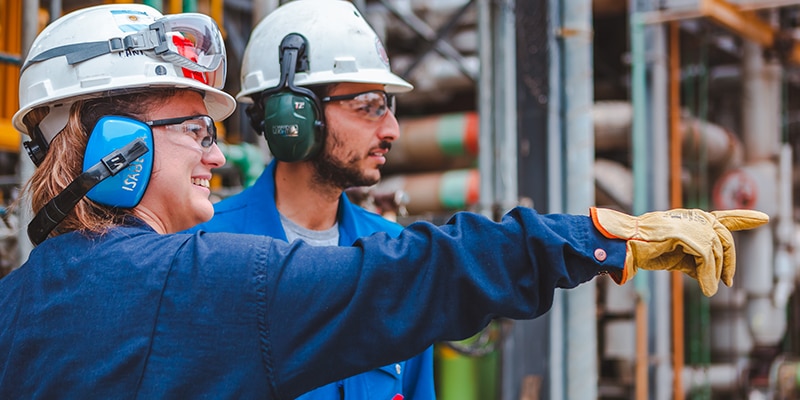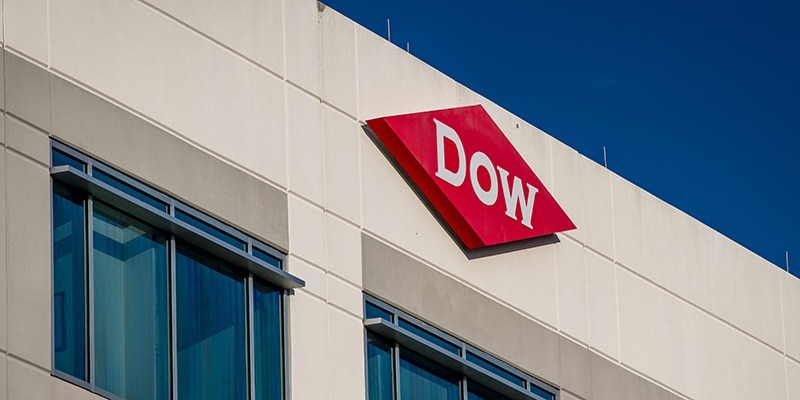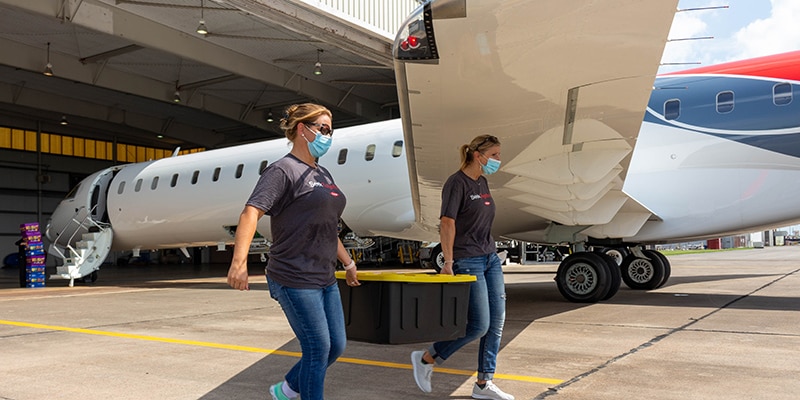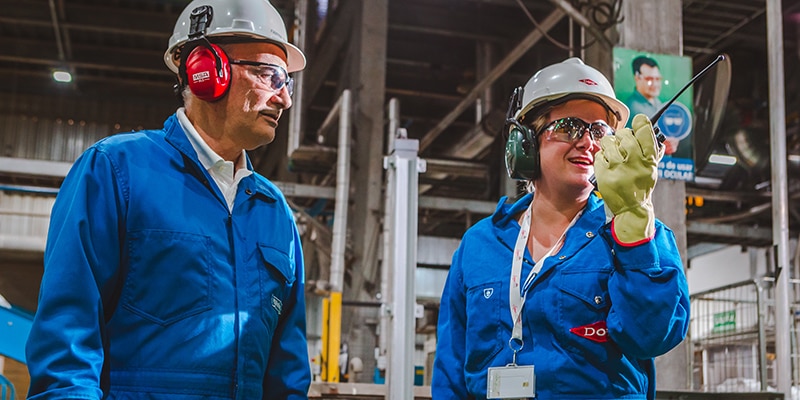MIDLAND, Michigan – June 17, 2021 – Following announcement of a joint development agreement in June 2020, Dow and Shell today report progress on their technology program to electrically heat steam cracker furnaces. This new route has the potential to significantly reduce CO2 emissions from one of the central processes of the chemical industry.
The companies confirm that the joint program has been awarded €3.5 million (USD$4.2 million) in MOOI (Mission-driven Research, Development and Innovation subsidy) scheme funding by the Netherlands Government. They also announce joining forces with The Netherlands Organisation for Applied Scientific Research (TNO) and the Institute for Sustainable Process Technology (ISPT). This multi-company collaboration aims to accelerate key milestones for the near-term progress and longer-term breakthroughs needed.
In the first year, the program has advanced electrification solutions for today’s steam crackers while also pursuing game-changing technologies for novel designs of electrified crackers in the longer-term. The dual-path approach aims to support significant emission reductions required to meet the companies’ 2030 CO2 ambitions and their targets to achieve net zero emissions by 2050 or sooner, in line with the Paris Agreement. Joint teams in the Netherlands and the United States have deployed their expertise in electrical design, metallurgy, hydrocarbon technology and computational fluid dynamics to narrow down concepts, validate emissions benefits, advance patents, demonstrate the durability of electric heating elements, and partner with equipment suppliers.
The companies are now evaluating construction of a multi-megawatt pilot plant, with potential start-up in 2025, subject to investment support.
The two new collaborators bring further expertise and a common commitment to a low-carbon future. TNO has deep knowledge in high temperature heat transfer applications and plays a leading role in identifying innovative electrical technologies that could be deployed in industry. It is a founding partner of the state-of-the-art Field Laboratory Industrial Electrification in Rotterdam. ISPT is focused on the system integration of preferred concepts, connecting the dynamics of breakthrough technologies with those of utilities and infrastructure in the chemicals industry through the energy transition.
“Our multidisciplined team has forged a strong working foundation and made significant progress in the first year of our multi-generational plan,” Keith Cleason, Vice President Dow Olefins, Aromatics and Alternatives business. “We are pleased to add ISPT and TNO to the joint program as they bring complementary expertise and share the same drive to bring viable, low-carbon technologies online as soon as they are feasible.”
Thomas Casparie, Executive Vice President of Shell’s global chemicals business, said “Being selected for funding from the Dutch Government is a vote of confidence in the initial progress of this joint e-cracking program, and its potential to help transform the chemicals industry. The effort is an example of genuine cross-company collaboration to accelerate decarbonisation, and it’s great to have our two new partners aboard.”
About Dow
Dow (NYSE: DOW) combines global breadth, asset integration and scale, focused innovation and leading business positions to achieve profitable growth. The Company’s ambition is to become the most innovative, customer centric, inclusive and sustainable materials science company, with a purpose to deliver a sustainable future for the world through our materials science expertise and collaboration with our partners. Dow’s portfolio of plastics, industrial intermediates, coatings and silicones businesses delivers a broad range of differentiated science-based products and solutions for its customers in high-growth market segments, such as packaging, infrastructure, mobility and consumer care. Dow operates 106 manufacturing sites in 31 countries and employs approximately 35,700 people. Dow delivered sales of approximately $39 billion in 2020. References to Dow or the Company mean Dow Inc. and its subsidiaries. For more information, please visit www.dow.com or follow @DowNewsroom on Twitter.
About Shell Chemicals
Shell’s global chemicals business supplies customers with a range of base, intermediate and performance chemicals used to make products that people use every day. These finished products contribute to society’s ability to live, work, care and respond to climate change. As global demand for chemicals increases, we plan to grow our business, by understanding and providing for our customers’ needs. Our business is versatile and resilient. We have strong market positions, integrated world-scale assets, leading technologies and a commitment to a sustainable future. References to the expressions “Shell”, “Shell’s chemicals business” or “Shell’s chemical plants” refer to multiple companies that are part of the Shell Group that are engaged in chemical or related businesses. For more information, please visit www.shell.com/chemicals.
About The Netherlands Organisation for Applied Scientific Research
TNO connects people and knowledge to create innovations that sustainably strengthen the competitiveness of companies and the well-being of society. That is our mission and more than 3400 TNO professionals work on it every day. We do this together with partners and focus on nine domains, including the energy transition. Together with the industry and the government, we want to accelerate the energy transition so that by 2050 the Netherlands and other countries will have an energy system without CO2 emissions. The energy transition also offers the Dutch business community the opportunity to lead the way and to export their innovative products and thus contribute to the energy transition worldwide.
https://www.tno.nl/en/focus-areas/energy-transition/roadmaps/towards-co2-neutral-industry/
About The Institute for Sustainable Process Technology
No circular economy without a sustainable process industry. The industry is the driving force and connector in re-use of residual flows and waste streams, system integration of energy demand, development of hydrogen as feedstock and energy carrier, and so on. Therefore, the Institute for Sustainable Process Technology (ISPT) connects stakeholders from different sectors and disciplines in an open innovation platform, where we work together on groundbreaking innovations towards a circular and CO2-neutral process industry in 2050.
For further information, please contact
Kyle Bandlow
+1 989-648-2417
kbandlow@dow.com
Jarrod Erpelding
+1 989-948-4693
jarrod.erpelding@dow.com





